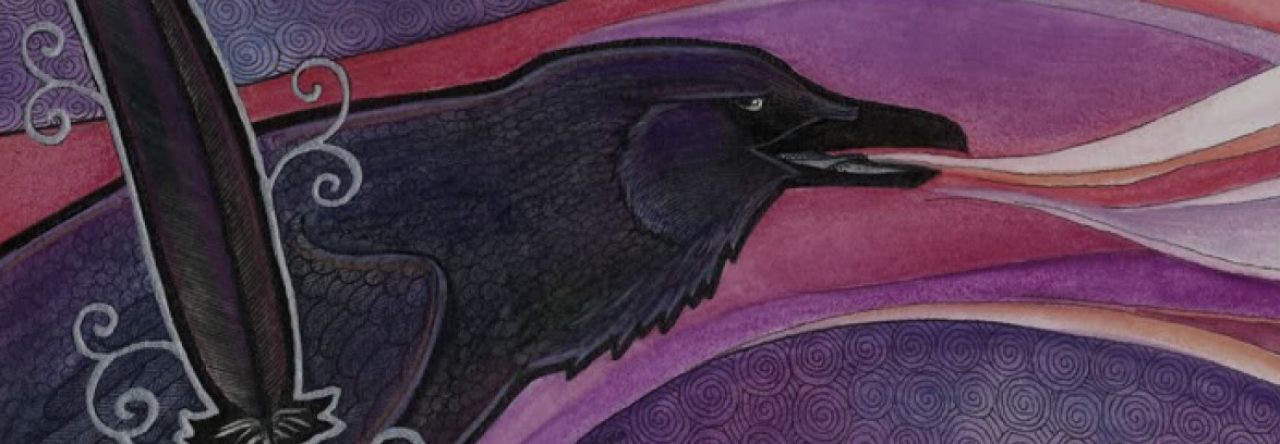

Deborah Kalin is an award-winning writer of literary speculative fiction, author of the collection Cherry Crow Children and of The Binding novels.
 has garnered several awards nominations, both for individual stories and for the whole collection, as well as won two Aurealis Awards and had a story from the collection nominated for a Shirley Jackson Award. How was the process of writing and collating this collection? How does it feel to have so much recognition for it?
has garnered several awards nominations, both for individual stories and for the whole collection, as well as won two Aurealis Awards and had a story from the collection nominated for a Shirley Jackson Award. How was the process of writing and collating this collection? How does it feel to have so much recognition for it?
To answer the latter first: so gratifying and amazing! Honestly, the critical response was overwhelming: I think in the end it garnered about 12 nominations for various awards, and every story got a nod somewhere. I was so proud of this collection, when I finally submitted it; and to have people not only enjoying it but nominating it for official recognition is a literal dream come true.
Not least because the process of writing it … well! I’ve blogged and spoken in depth about how difficult a journey it was. Suffice to say it turns out every thing people tell you about life with a newborn is true, and then some. But for me, I think what I found hardest was the utter lack of alone time. Writing is heavily tied in to solitude for me. The stories themselves I can write in half-hour snatches, but to come up with a story I need swathes of thinking time.
On top of that, these stories were difficult because they each opened a deep vein. In one way or another, I identified strongly with each of my characters, and putting them through the narratives that formed around them was harrowing. I have never been so glad to finish anything, as I was to finally submit this collection!
I think I might be a terrible person to ask for advice on writing short stories! The opening story in CCC, The Wages of Honey, stood at about 10k when I submitted it, and Alisa asked me for three more “about the same length”. I think Briskwater Mare came in at 12k, and the next two were around the 20k mark each. I’m dreadful at writing short! In fact, my two novels are essentially one book/story that I split in half at a resolution point (with cliffhanger) for saleability purposes. So I can’t even write novels to length.
Perhaps unsurprisingly then, for me, there’s little difference in terms of raw process: I still have to include all the same ingredients (character, conflict, setting, tension, resolution, etc). But there’s far less space in a short story, so I do find more of the backstory and/or research isn’t allowed on the page. And because there’s so little space and so much to fit in there, I do tend to agonise over word choice and sentence structure more. Not that I don’t with novels, as well, but it’s possible to hold the entirety of a 20k word story in your head all at once, which does make for a more cohesive editing process. Novels you have to wing it and trust your editors far more.
As for advice on moving between the two forms: I think that’s going to be very specific for each individual. The two lengths will impose different constraints and restrictions and freedoms, obviously; but how that translates to any given writer will be unique. For me, world building and characterisation as an integral/organic part of that world is a huge part of my stories; I think that’s why I struggle to write short, since there really isn’t that much room for atmosphere in a short, not if you want to have character and plot as well. So I guess my advice would be to know what you like best in your own writing, and edit yourself and/or give yourself a break accordingly.
I’m currently trying (around a toddler and a day job and the Melbourne commute) to write what I’m calling the troll novel. It appears to be about family, identity, possession and fertility; and it’s heavily inspired by my trip to Iceland. Because I write without an outline, I suspect I won’t know entirely what it’s about until the zero draft is written, but at this stage it looks to be full of moss and frustration and anguish. (So, business as usual?)
Which Australian work have you loved recently?
Ooh, this is my favourite part!
Recent highlights include Leanne Hall’s “Iris and the Tiger” and Meg McKinlay’s “A Single Stone”.
The former has the perfect amount of whimsy and light-heartedness to put a piece of sunshine in your soul; I’ve been recommending it to everyone I can.
The latter is a delicately thought through story examining the constraints of environment on a society and the inevitable consequences of perception and interpretation being stretched over generations, all in one swift read. There’s a reason this one’s been winning lots of awards!
Goodness! Well, setting aside the fact I’m pretty sure there’s a distinct circle of hell devoted entirely to being trapped next to someone too chatty on a long plane flight, given my ‘druthers it would definitely be Jane Austen. She had such an eye for the human heart, and a deep-rooted empathy combined with a sharp wit. I don’t love everything she wrote, but of the ones I do love (Pride & Prejudice, and Persuasion), I love so deeply I can’t hear a word against them.
This interview is cross-posted to the 2016 Snapshot blog, along with all the other Snapshot interviews.

Leave a Reply